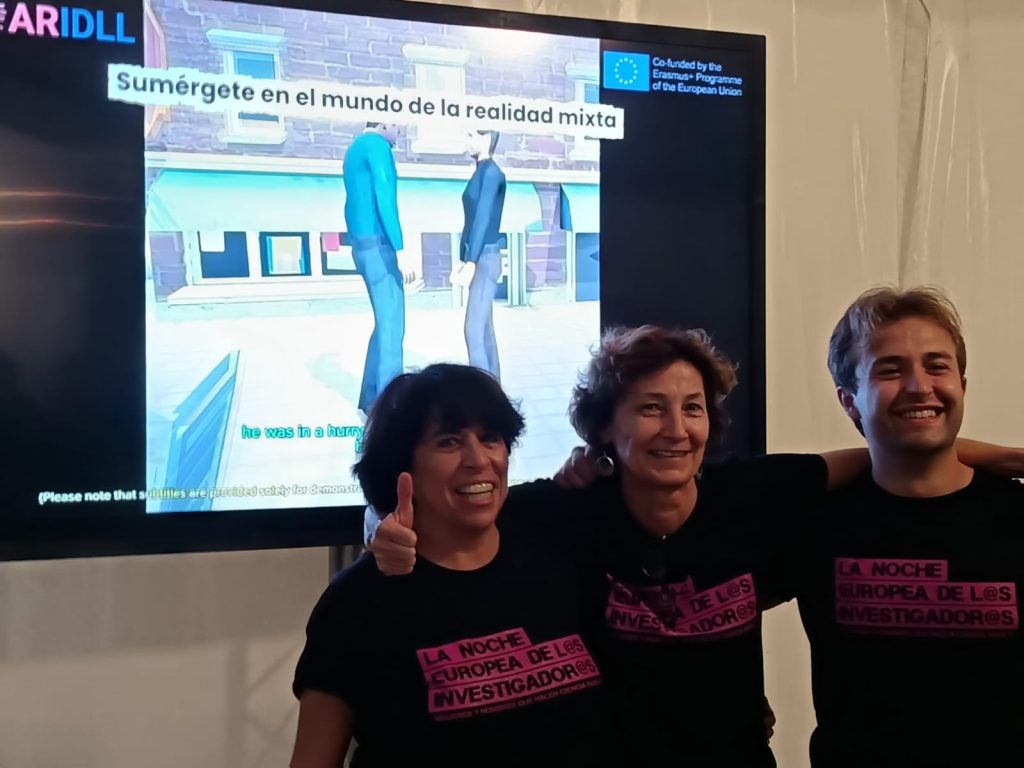ARIDLL at European Researchers’ Night with Dive into Another Language: AI and XR Workshop for Learning Through Play
Title: Dive into Another Language: AI and XR Workshop for Learning Through Play
The workshop was held by Anke Berns, Concha Valero-Franco and Ismael Cross-Moreno
On September 26th, 2025, the University of Cádiz (UCA) hosted the workshop “Dive into Another Language: AI and XR Workshop for Learning Through Play” as part of the European Researchers’ Night, an event celebrating scientific discovery and innovation across Europe.
The activity was organized within the framework of the Erasmus+ project ARIDLL (2022–1-NO01-KA220-HED-000088034), the GENIALLE project (PID2023-149674OB-I00), and several Teaching Innovation Projects carried out at the University of Cádiz (SOL-202400284819-TRA and SOL-202400284837-TRA). These initiatives explore how Extended Reality (XR) and Artificial Intelligence (AI) can transform language learning, promoting creativity, inclusion, and engaging educational experiences.
Participants experienced how Augmented Reality and AI-powered tools can make learning more immersive, motivating, and connected to real-life contexts. Through interactive demonstrations, attendees discovered playful and meaningful ways to engage with new languages.
Beyond showcasing technological innovation, the workshop created an open and inclusive space for exploration, welcoming participants of all ages and backgrounds—regardless of previous experience with digital tools. By combining innovation with accessibility, the event advanced a vision of education that is dynamic, equitable, and aligned with the expectations of new generations.
This initiative highlighted the value of educational research and innovation in shaping the future of learning, illustrating how Extended Reality and Artificial Intelligence can serve as powerful tools to enrich language education across Europe.

In this video, we present several examples of foreign language learning activities developed using MirageXR and DelightexEdu (formerly CoSpaces). The objective is to illustrate how technologies such as Extended Reality (XR) and Artificial Intelligence (AI) can be effectively integrated to support and enhance language learning. These examples highlight the potential of immersive and interactive environments to foster learner engagement, promote active participation, and facilitate the acquisition of different linguistic competences.

